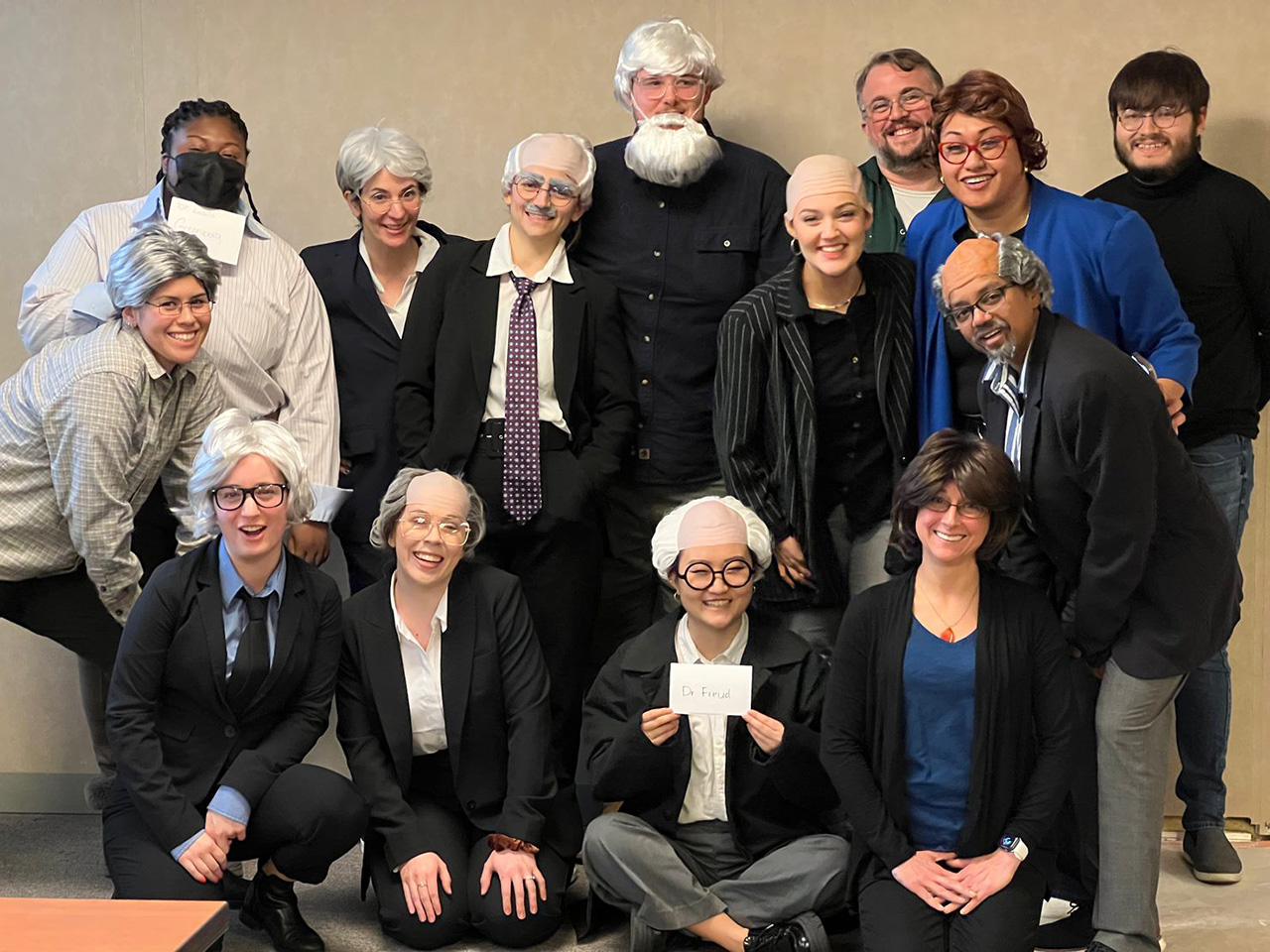Who Says Doctoral Psychology Students Can’t Have Fun?
I have had the honor of teaching Systems and Modalities for many years. In this course, Northwest University PsyD students study the various systems and modalities of therapy that have been developed over time.
To enhance the learning experience, each student is asked to choose one leader in the field and in essence, become that person for the semester. The student is to research this person’s life, examine their life history, identify if their spiritual beliefs or faith impacted the development of their therapy, and learn how to do a therapy session as if they were this person.
The student then dresses up like that person and conducts a mock therapy session, presents to the class, and participates in a round table discussion. The latter is one of the most memorable parts of the class. This year, there were 14 students who represented 14 leaders in the field at the round table.
During the round table activity, a case was presented for them to discuss. Each person argued from their perspective—which of course they believed to be the right one—regarding how to best treat their client.
Some students are surprised to find a new appreciation for a particular theoretical orientation after having this experience. Others find that they want to move forward using the lens of their person as they enter their clinical training years and go on to take workshops and classes to learn more about this particular approach. All in all, students say they benefit from this type of learning and always remember this class.
This photograph was taken at the end of the round table, when, to my surprise, they were still speaking to each other after a rather lively and contentious discussion!

From Left to Right: (Back Row) William Glasser, Les Greenberg, Alfred Adler, Thomas Lynch, Fritz Perls, Steven Hayes, Carl Rogers, Carol Beck, Marsha Linehan, (Front Row) Carl Jung, B.F. Skinner, Sigmund Freud, Francine Shapiro, Irvin Yalom